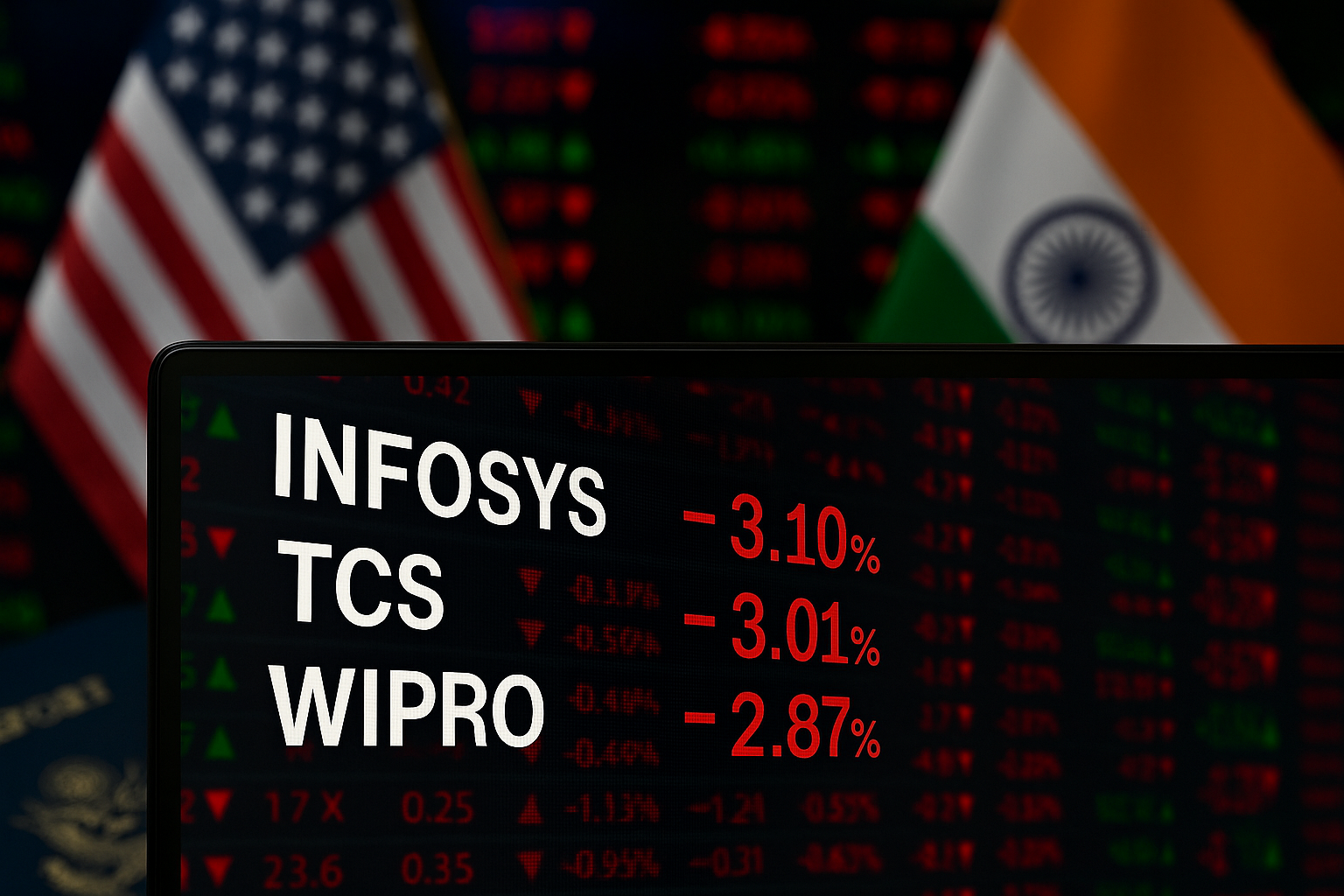Indian Tech Stocks Slump Nearly 3% After Trump Imposes Hefty H-1B Visa Fee
By Tredu.com • 9/22/2025
Tredu
India Tech SectorU.S. Immigration PolicyStock Market ReactionOutsourcing & OffshoringRisk Management

Sector under pressure as $100,000 fee on new H-1B visas clouds margins and business model
Indian IT firms saw a sharp drop Monday after President Donald Trump’s administration announced a new $100,000 fee on applications for new H-1B work visas, a move that could upend the traditional model many companies use to supply skilled labor to U.S. projects. The visa-sensitive Nifty IT index fell about 2.6–3%, led by large caps such as Infosys, TCS, Wipro, and mid-tiers including Persistent Systems.
What The Policy Does & Why It Matters
- The new fee applies only to new H-1B visa applications and not to renewals or holders of existing visas.
- India is a major beneficiary of H-1B visas: over 70% of approved H-1B beneficiaries in recent years have been Indian nationals.
- India’s IT sector gets about 57% of its revenue from the U.S. market, making it particularly exposed to disruptions in U.S. worker mobility and visa policy.
Market Reaction
- Major IT stocks such as Infosys, TCS, Wipro, and HCLTech dropped around 2–3%; mid-tier firms saw steeper losses, Persistent Systems led with about a 4% drop.
- The broader Nifty IT sub-index slumped nearly 3% as all 10 of its constituent stocks registered declines.
- The benchmark indices (Nifty 50, BSE Sensex) moved down modestly, dragged by the tech sector’s slide.
What This Means for Indian Tech Firms
- The cost structure for on-site (U.S.) project delivery may increase substantially; firms will need to revaluate how many employees they can send abroad vs doing work offshore or nearshore.
- Pricing pressure could rise: some clients may demand cost pass-throughs or renegotiations if labor costs increase.
- Risk to project timelines: with uncertainty around visa issuance, some work may have to be paused or delayed, especially where presence in the U.S. is required.
Risks & What to Monitor
- Legal and regulatory pushback: Some industry bodies and affected companies are expected to challenge the fee in court or seek exemptions.
- Clarifications from U.S. authorities: The initial confusion (e.g. over whether renewals or existing visas were affected) has unsettled markets. How the rule is implemented will matter.
- Client behavior: Some U.S. companies might accelerate hiring U.S. nationals or green card holders, or hot-swap roles away from H-1B substitution.
- Margin and revenue impact: Especially for mid-tier firms with less cushion, profitability may be squeezed if they cannot offshore work or reduce dependence on on-site staffing.

How to Trade Like a Pro
Unlock the secrets of professional trading with our comprehensive guide. Discover proven strategies, risk management techniques, and market insights that will help you navigate the financial markets confidently and successfully.


